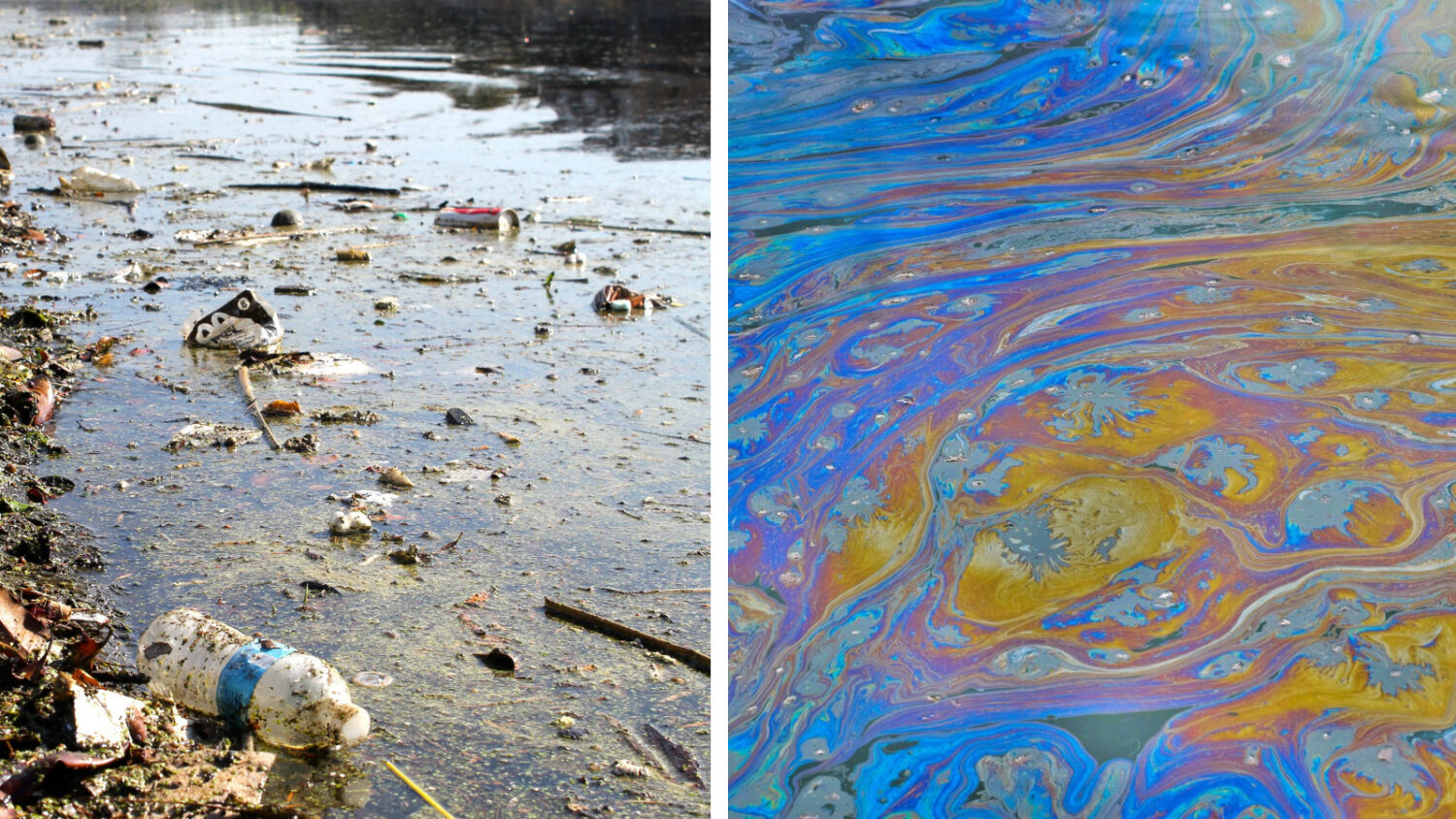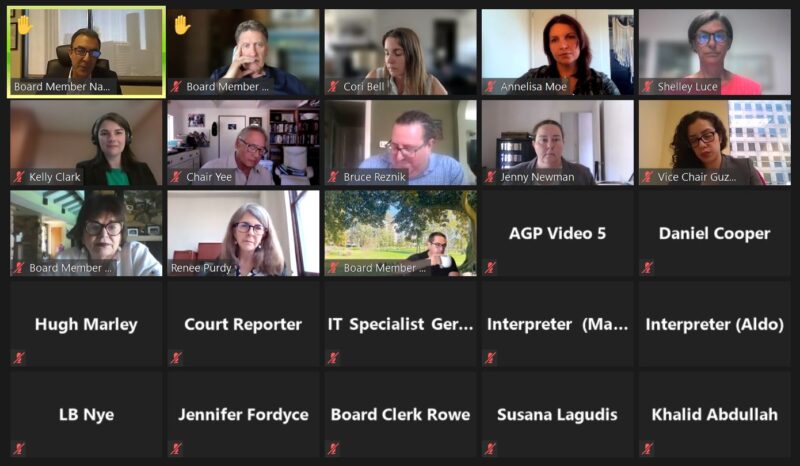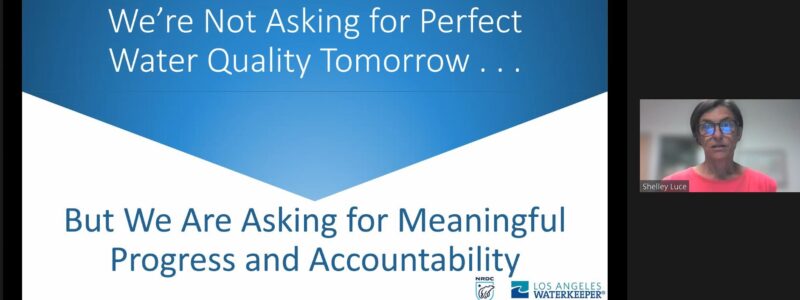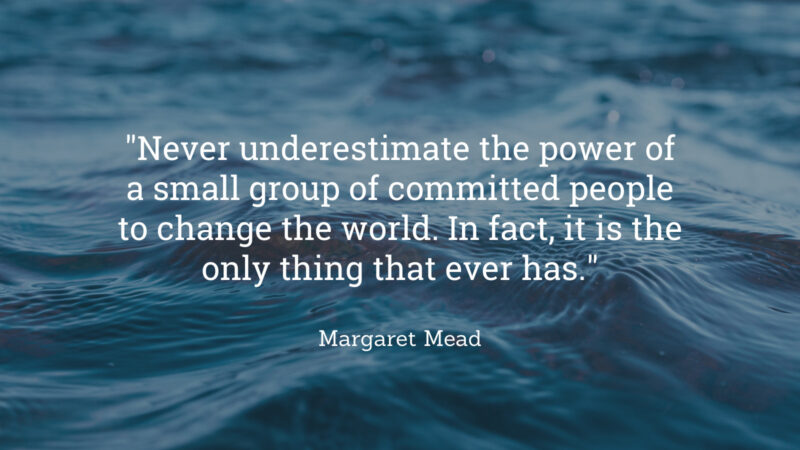LA Regional Water Board Votes to Allow Continued Degradation of Waterways

The Los Angeles Regional Board has neglected their mission – to protect and enhance our water resources – by making polluting easier for dischargers rather than requiring action. The job of holding polluters accountable will once again fall on us.
The discharge of polluted stormwater in Los Angeles is regulated by the LA Regional Water Quality Control Board through the Municipal Separate Storm Sewer System (MS4) Permit. The Regional Board had an opportunity this month to improve the MS4 Permit during its decadal update, but in a disappointing decision the Board instead greenlit the continued degradation of waterbodies in our communities by adopting a MS4 Permit with the same loopholes as the ineffective 2012 Permit. This decision continues a pattern of insufficient accountability for stormwater dischargers and will only further delay progress, resulting in stagnant or even declining surface water quality.
Permittees asked for a weaker permit with fewer requirements and a longer timeframe

The four-day hearing (see our Twitter updates) began with testimony from public officials who once again lamented their limited access to competitive funding sources for stormwater projects. Elected officials represent cities, which are permittees under the MS4 Permit. They are not community voices – they are the voice of the dischargers asking for a weaker permit with fewer requirements and a longer timeframe.
We understand that completing projects is difficult, particularly for cities with smaller budgets. However, the MS4 Permit has been around for 30 years, and we have yet to see a significant reduction in stormwater pollution. We cannot afford to wait another 30 years before we start to see improvements. Luckily, there are funding opportunities available right now through local, state, and even federal programs. Additional resources include opportunities for collaboration between the cities, supplemental work from non-profits and community groups looking to build projects in their neighborhoods, support from Regional Board staff, and information from LA County’s WHAM Taskforce and Watershed Coordinators who are all assigned to identify and leverage funding sources.
Most importantly, the benefits of compliance far outweigh the costs. Achieving clean water is not just a respectable goal, but a federally mandated law to protect communities and ecosystems from polluted water. Unfortunately, water quality has stagnated, even gotten worse in some areas, as our City and County governments have fallen behind schedule. Yet, there are no penalties for their inaction.
Members of the public asked for clean water, better regulation, and more transparency
The Board also heard from dozens of community members asking for clean water, better regulation of stormwater pollution, and more transparency in the regulatory process. We heard from Eva Pagaling, whose tribes (Samala Chumash and Yakama) have historically gathered materials, medicines, and food in the Santa Clara River watershed and coastline. Eva reminded us that these tribes shoulder the burden of MS4 pollution, and urged the Regional Board to hold accountable those responsible for polluted discharges. We heard from Itzel Flores Castillo Wang, a community member and organizer from Boyle Heights in East LA, supporting a transparent permit that holds permittees accountable to implement multi-benefit and nature-based projects where they are needed most. We heard from so many folks demanding action now, in the form of a SMMART Permit that holds polluters accountable and that allows the public to follow progress and engage in the process.
Heal the Bay gave a presentation alongside partners at LA Waterkeeper and the Natural Resources Defense Council outlining the strengths and flaws of the proposed 2021 Regional MS4 Permit. We supported the watershed approach because water flows throughout watershed boundaries; therefore, the approach to reducing pollution must be watershed-wide without stopping at city limits. The optional watershed management program within the permit framework allows for that watershed approach. However, we did not support the “deemed in compliance” language (also known as the “safe harbor”), which shields polluters from enforcement. A SMMART permit can invest in our communities through multi-benefit projects, but only if it is actionable, with enforceable deadlines so that those benefits can become a reality in our communities and not just a hope for the future.

“The small list of projects presented by permittees are happening because there are TMDLs with deadlines and consequences built in. There is no justification for maintaining the safe harbors in this permit. Board staff has already allowed plenty of flexibility…” – Dr. Shelley Luce.
The Water Board is supposed to preserve and enhance water quality for present and future generations; instead, they chose to excuse permittees, once again, for their lack of action.
The Regional Board voted to allow continued degradation of our waterways
As final deliberations began on July 23, it became apparent that Board members were more concerned about the complaints of the permittees than about the demands of community members. Some Board members went even further to bow to dischargers by proposing motions to extend deadlines (which thankfully failed, but with a narrow 4-3 vote against) and completely remove numeric water quality requirements (which failed with a 5-2 vote against). Finally, the Board voted to approve a 2021 Regional MS4 Permit that includes the same safe harbors that made the 2012 MS4 Permit so ineffective, even after dozens of community members asked them directly for clean water and more accountability.
Some improvements were made to increase transparency, including a final direction to Regional Board staff to create a single online portal for all annual reports; however, without even the possibility of enforcement by the Board, there is no accountability for polluters.
It is up to all of us to Take LA by Storm and push for progress together
One board member claimed that “the safe harbors are an expression of trust and confidence in permittees.” But knowing the permittee’s record of inaction, we do not share that trust. By keeping the safe harbors, the Board has effectively decided not to enforce this critical permit. So now, the job of holding permittees accountable will once again fall on us, the concerned residents and nonprofit groups of Los Angeles and Ventura Counties. We can take inspiration from Margaret Mead and know that, together, our actions can make a difference.
Sign up to Take LA by Storm to receive updates as the permittees submit their semi-annual reports. We will continue to search for ways to hold polluters accountable while we track progress. If implementation continues to lag, we will demand action together.



